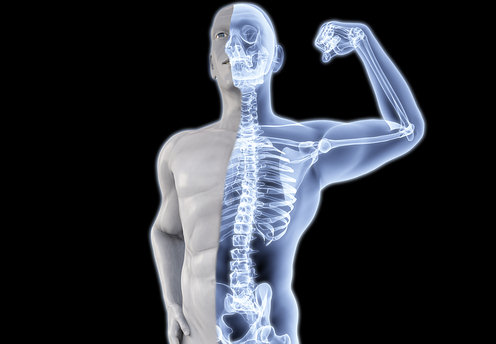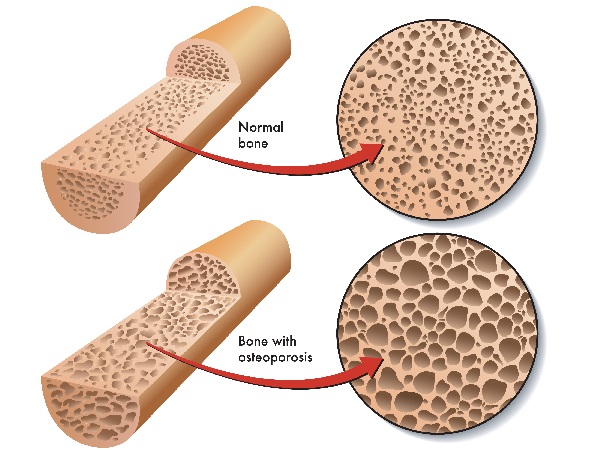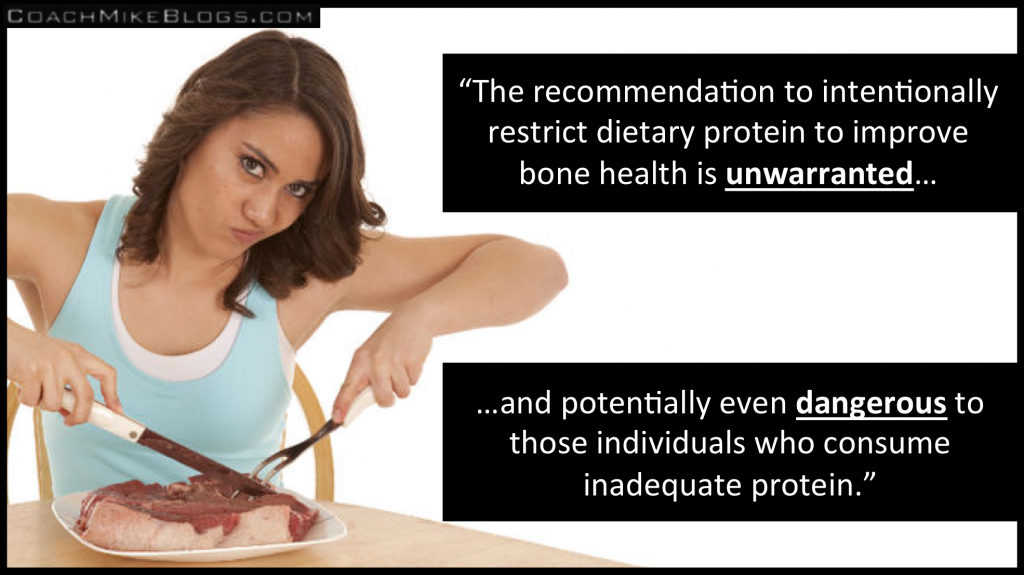Though most of us would like to think we can trust The American Heart Association, it’s statements like this that make you wonder:
“Individuals who follow these [high-protein] diets are at risk for … potential cardiac, renal, bone, and liver abnormalities overall.” –AHA, 2001
There never was and never will be evidence to support these claims. Because just like higher protein intakes are protective (not damaging) to the kidneys, osteoporosis is best prevented, and bone health is best supported, when animal foods are prioritized.

Before getting into the research on why this misconception exists, lets stop and think about this for a second:
- Protein helps individuals gain and maintain muscle.
- Muscle surrounds bone, protecting it from damage, and provides strength and stability to the musculoskeletal framework.
- Muscle loss (atrophy), from a lack of dietary protein, is highly correlated with bone loss, and a lack of muscle strength with an increased risk of fracture (usually from falling).
- It’s hard to prevent a fall, without the muscles to provide stability, and hard to prevent a bone fracture without the protection that muscle provides.
- The increased risk of fracture is as high as 3 times greater when muscle loss is present, and a LACK of dietary protein causes this loss.
Thus, without looking at a potential connection between protein intake and bone loss, we know that:
Eating a diet high in protein promotes muscle maintenance, providing strength, stability, and bone protection as we age.
The theory that a high protein diet causes bone loss stems from results showing a considerable (60mg) excretion of calcium in urine for every 50g increase in protein intake. And because the majority of calcium is stored in bone, it’s easy to assume that this calcium excretion must be coming from there.

But this is far from accurate, and it appears the opposite is true – as there’s plenty of reliable evidence to suggest that high protein diets do not negatively affect overall bone density (they increase it), and we’re more at risk of bone loss from a lack of protein:
“The recommendation to intentionally restrict dietary protein to improve bone health is unwarranted, and potentially even dangerous to those individuals who consume inadequate protein.”
For instance, the Framingham Osteoporosis Study from the year 2000 looked at 615 men and women over 75 years old with daily protein intakes ranging from 14g to 175g. The higher intake did not correlate with bone loss, and those eating less protein experienced losses on the femoral bone and spine (yikes!).
Likewise, this 1999 study from the American Journal of Clinical Nutrition showed that an increase in dietary protein reduces the risk of hip fracture in postmenopausal women.

Aside from supplying essential amino acids, this is because animal foods are our best source of vitamin D (other than the sun); which is directly correlated with our absorption of calcium, and has more to do with the increased prevalence of osteoporosis than anything. Moreover, protein increases IGF-1 (Insulin-like Growth Factor) – a hormone that promotes the development of muscle size, and regulates bone metabolism and building.
Realistically, dietary protein is as critical as calcium and vitamin D in the prevention of osteoporosis. And it’s what used to keep us strong before the unnecessary fears of fat, and vegan propaganda came along:

The diet we thrived on for millions of years prior to the development of agriculture, and the one that led to minimal (if any) incidences of degenerative disease, had nearly 4 times the protein than we consume now.
So, should we be surprised that osteoporosis now accounts for 1.5 million fractures annually?
Something tells me it’s not because they’re serving too much animal protein at the old folks home.
Stay Lean!
Coach Mike
RELATED ARTICLES:
Eat More Meat, Burn More Fat. Period!
Animal Protein is Acidic But Not Harmful
Bone Health With Vitamin D NOT Calcium
